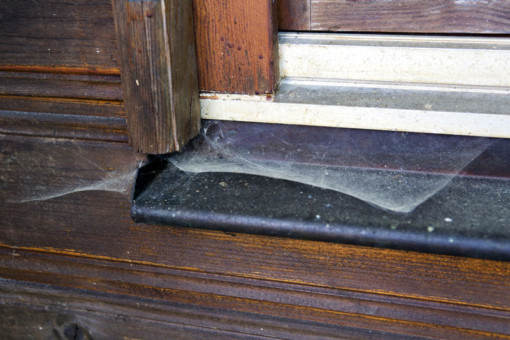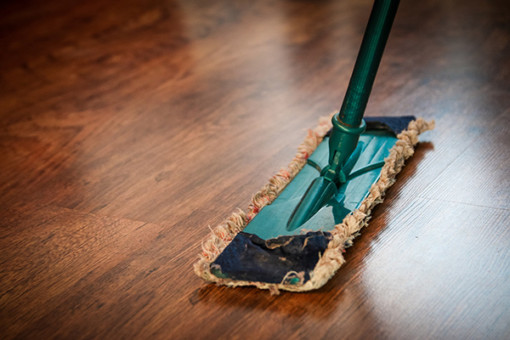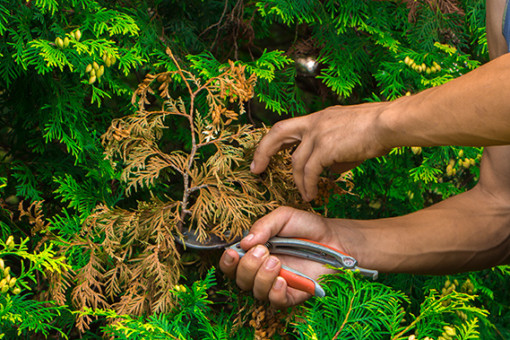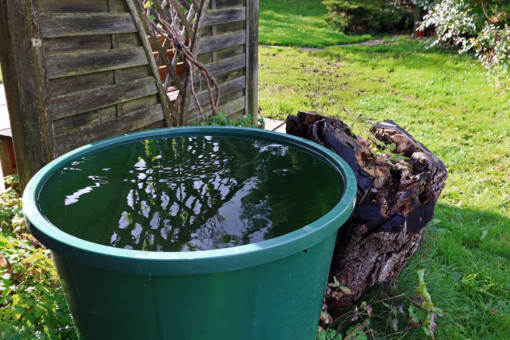Summer is a great time of year, synonymous with neighborhood barbecues, celebratory fireworks, and weekend beach trips. Unfortunately, summer also means that insects and bugs come out of winter hiding and begin to suddenly appear in the corners of our homes. No one wants to deal with ants in the kitchen, spiders crawling in windows or wasps in the garage. Thankfully, there are ways to keep unwanted visitors to a minimum. Check out these tips (which we’ve roughly divided into two sections) to bug proof your home and keep insects out this summer.
Inside Your Home
We all want our homes to be our castles, but an incursion of insects, mammals, and/or wildlife can make them feel anything except cozy. The first place you should start when trying to create a bug proof house is inside your home, and you can begin by taking the following steps:
Screen all openings
It seems obvious that the best way to keep bugs out is to make sure they have no way in, but you’d be surprised at how many secret entrances these critters have into your home. Ventilation ports, windows that are regularly opened, and doors leading to the exterior should all be screened with fine mesh. Also, bug proofing windows involves checking your existing window screens for tears and adding weather sealing along the edges and the frames.
Install door seals
Screens aren’t always enough to keep out small pests. Gaps between doors and door frames may also serve as points of entry. After putting in bug proof window screens, consider installing a threshold or door sweep under your front door to prevent bugs from crawling under.
Fill cracks
Both insects and mammals can squeeze their way through remarkably small openings. Look behind appliances and furniture for any cracks in the wall and seal them up.
Seal all utility openings
Utility openings are just another crack as far as pests are concerned. Take steps to seal them up or screen them to avoid unwanted guests.
All outside doors should be self-closing
Leaving doors open is a prime way in which pests in general and insects in particular gain access to a home. Automatic closing mechanisms go a long way toward remedying the problem.
Repair leaky piping
As we mention in our next section, pests don’t merely want food. They also long for water. Even slowly dripping pipes that barely register on a utility bill can quickly lead to a serious infestation.
Install wire mesh
Crawl spaces, chimneys, and various vents can serve as harborage points for rodents and wildlife. Wire mesh, which is thicker and tougher than the stuff that goes over screen doors and patios, serves as an effective barrier.
Use airtight storage containers
Insects usually enter homes in search of food, so make sure to pack up all your food and store it in a secure location. Minimize crumbs in the carpet by containing meals and snacks to the kitchen and dining areas. Even after food has been thrown away, the smells will still attract bugs, so try keep lids on your trash cans, too.
Employ good sanitation procedures
While food is the main culprit when it comes to pest incursions, it certainly isn’t the only one. Messy homes provide bugs with plenty of hiding spaces, and cockroaches have even been found to be attracted to the smell of paper. Proper cleaning and tidying will go a long way to pest proofing your property.




Outside Your Home
Most pest threats don’t originate from inside your habitation. Instead, they come from the outside. If you want to know how to keep insects away from home naturally or if you’d simply like to supplement the efforts of your pest-control professional, consider the following steps:
Perform general yard clean up
Keep trees and bushes trimmed back so that they do not touch the home. When branches and trees come in direct contact with the home, you are providing an easy path for pests to get into your house. At the base of the home, you can create a similar barrier between any mulched areas where pests may live and the foundation of the house to reduce the likelihood of pests entering the home.
Use pest-resistant trash receptacles
Wildlife often displays great ingenuity in accessing trash cans and recycling bins that seem secure. Tightly sealed lids are often an adequate solution. Additionally, the scraps of rubbish that remain in a dumpster can lead to pest problems, and regular cleaning is often required.
Pest proof your compost bin
The same rules that apply to trash receptacles also apply to compost bins. Securely anchored lids prevent repeat visits from unwanted irritants. So does avoiding the composting of common lures such as meat, dairy, fats, or manure.
Encourage birds and bats
Wondering how to keep bugs out of house in summer? Consider making your yard more bird- and bat-friendly by including adequate landscaping for nest building and small bat houses as daytime shelters for flying, bug-eating rodents.
Plant flowers
A few blooms around your property may also attract birds and bats. Other beneficial creatures that prey on common pests may be drawn to your yard, particularly if you plant flowers such as Queen Anne’s lace, sunflowers, chicory, or goldenrod.
Conduct regular maintenance checks
Ensure that you don’t have broken sprinklers or low-lying areas that collect stagnant water. Most people know that food attracts bugs but usually overlook the fact that water can be just as appealing. To a bug, moist environments mean not only drinking water but also breeding grounds — especially for mosquitoes. Make sure gutters are clear and water drains appropriately away from the house to reduce attractiveness to occasional invaders, ants or wood damage from termites.
Even if you follow all of these steps to bug proof your house to the letter, no home can be made completely bug proof. When your home is threatened by pests, it’s often best to leave the job to the professionals, especially when dealing with particularly difficult critters like termites or an ant infestation. Exterminators have the right tools and experience to get rid of infestations, and professional pest control is the best way to leave your home as bug-free as possible. Contact the experts at Smithereen to learn more about bug-proofing your home this summer.